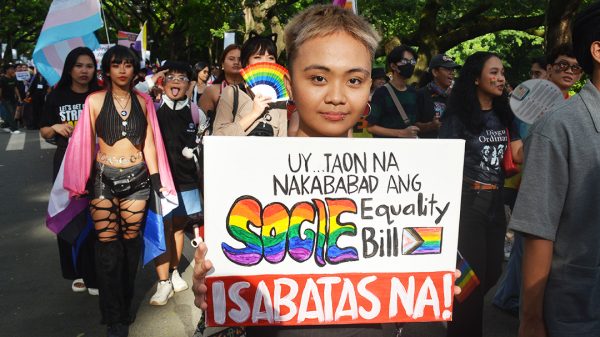If you’ve got rental property (or you’re eyeing it) and you care about doing more than just collecting rent, then this one’s for you. Being a landlord isn’t just about maintenance calls and lease renewals; it’s a chance to model fairness, build community, and serve tenants with dignity.
So grab your favourite drink, pull up a chair, and let’s talk about how to elevate your landlord game in an ethical + inclusive way.
Start with empathy and remember your tenants are people
Let’s kick off with the big one: your tenants are people, not “units.” When you remember that, everything else flows more smoothly. That means:
- Greeting them properly (not just handing over keys).
- Listening when they say “Hey, this feels unsafe,” or “I’m having a hard month.”
- Recognizing that for many, a rental isn’t just a place to crash; it’s home, foundation, stability.
So being inclusive begins with respect: using the correct pronouns, valuing diverse perspectives, and making the space one they feel safe and welcomed in.
Write a clear, inclusive lease
One of the smartest moves is using a lease that leaves no one guessing. If the language is archaic, confusing, or treats the tenant as adversary, you’re starting off on the wrong foot. Instead:
- Use plain English (or have plain English summary).
- Avoid discriminatory framing: talk about “tenant rights and responsibilities”, not “how we’ll punish infractions”.
- Make sure the lease is accessible: if you have non-native English speakers, consider translated summaries; if someone needs an ADA accommodation, note how you’ll handle it.
- Include a clause about respectful community behavior that emphasizes shared living rather than “you must obey.”
When the lease is fair, inclusive, and transparent, you lay the groundwork for a positive landlord-tenant relationship.
Set up equitable screening practices
Screening tenants is necessary, but it also comes with a big responsibility. You want safety and reliability, but you also want fairness. Some tips:
- Use consistent criteria for all applicants.
- Don’t penalise someone solely for a past mistake that’s no longer relevant (if the laws where you are allow that).
- Be mindful of income-to-rent ratios that don’t lock out modest-income tenants.
- Offer flexibility: maybe someone has a lower income but stellar references and has never missed rent.
Remember: being inclusive means recognising that different lives may lead to the same outcome of good tenancy.
Provide a safe, accessible home
Accessibility and safety are huge. Your property should be somewhere tenants can live without worrying about barriers. That means:
- If there are mobility issues: paths, door widths, grab-rails where needed.
- Safe lighting, secure locks, functioning smoke/carbon detectors.
- Making sure you’re responsive to repair requests (which is also ethical).
- Considering language/accessibility supports: for example, you could have a “how to contact us” template in multiple languages or allow for text-based requests if someone is hard of hearing.
Inclusive landlords don’t treat accessibility as an after-thought. They build it in.
Offer flexible payment options because life happens
Being inclusive means recognising that tenants in your real estate may not all prefer (or be able) to do things the same way you do. One idea: provide multiple ways to pay rent, including electronic payment options. For example, using apps or online portals makes things simpler and more transparent. And if someone prefers or needs paper checks, that’s OK too.
Also: keep records for yourself and them. A resource like this post that shows you a rent receipt example filled out, can help you create fair documentation. Having clear receipts protects both of you.
Communicate like a human (not a robot)
Clear communication is an ethical landlord’s secret weapon. Make it friendly, consistent, and inclusive:
- Send reminders in plain language (not threat-tone).
- Provide a preferred method: email, text, WhatsApp? Ask tenants what works best.
- Be transparent about maintenance schedules, rent increases, community rules.
- Encourage feedback: “If you have a concern, talk to me. I want to make sure this works for you.”
When tenants feel heard, they’re more likely to respect the space and stay longer, which is a win for everyone.
Be transparent about rent increases and rules
Nothing kills goodwill like surprise rent hikes or hidden fees. If you’re planning a rent increase, let your tenant know why, when, and what options they might have (e.g., renewing early at current rate, or exiting gracefully). Tie rules to the lease and community standard, not to arbitrary decisions (“You’re being charged this fee because you parked wrong last month” with no prior warning = not inclusive).
Encourage community and respect diversity
A great landlord helps foster community rather than just a bunch of strangers in units. Consider:
- Putting up a community board or newsletter encouraging local inclusivity events.
- Encouraging good neighbour behaviour: quiet hours, shared spaces, respect for differences.
- Recognising that tenants may come from different cultural backgrounds and being open to that.
By modelling respect, you build stronger relationships, and that leads to less conflict and better retention.
Respond quickly and fairly to issues
Whether it’s a repair request, a noise complaint, or a rent concern, how you respond matters. Ethical inclusion means:
- Having a clear process for complaints and repairs.
- Treating every issue impartially (tenant A vs tenant B: same rules apply).
- Being mindful of power dynamics: sometimes tenants are hesitant to raise issues for fear of retribution – avoid that by being open-door, non-judgmental, and consistent.
Educate yourself and follow local laws
Ethical landlords are informed landlords. That means:
- Knowing your local fair‐housing laws (protected classes: race, gender, disability, family status, etc).
- Staying updated on accessibility standards, tenant privacy rights, lease regulations, eviction laws.
- Following through: if someone raises a discrimination concern, you act.
Being inclusive isn’t just moral; it’s legal and sustainable.
Consider the bigger picture: your impact
Here’s where you get to think like a landlord and a community steward. Your property is part of a neighbourhood. Your decisions ripple out. So ask yourself:
- How energy-efficient is the unit? Can you upgrade to reduce bills for tenants (which improves inclusion by lowering cost burden)?
- Is the property easy to access via public transit or bike paths (important for folks who don’t drive)?
- Does your rental offer any support for under-represented groups (you might offer discounted rent or flexible terms for essential workers, or partner with a local non-profit)?
When you invest in the property and in the people, you create value far beyond the bottom line.
As you can see, you don’t have to be perfect to be a better landlord, you just have to do it with integrity, empathy and fairness.

































































